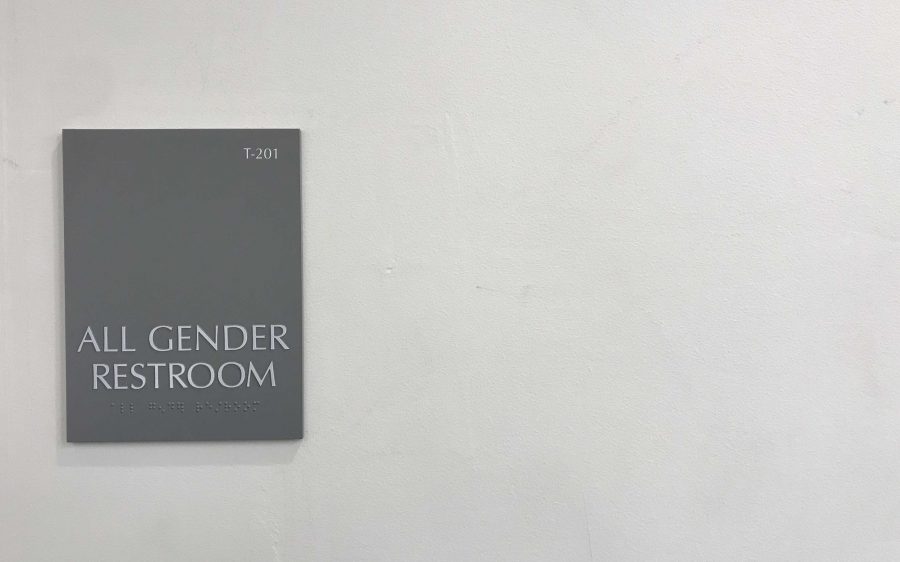Signage on University Restrooms Change to Promote Gender Inclusiveness
By Joergen Ostensen
The signage on Fordham University’s restrooms has been changed from “Restroom” to “All Gender Restroom” on both campuses as of this fall.
The change is an effort to make the campuses friendlier to transgender, gender non-conforming and non-binary students.
Sam Norman, FCLC ’19, of Students for Sex and Gender Equity and Safety (SAGES), said the change required a lot of effort over the last five years, despite being a seemingly minor change.
She said this points to a larger issue at Fordham.
“Trans students are always at high risks of violence and discrimination, and the Fordham administration was consistently hesitant in offering support and basic safety guarantees for these students,” she said.
According to Norman, changing the signs did not have a cost access barrier.
Norman said that SAGES, which is not an official university club, teamed up with The Positive, a student group at Lincoln Center, to work to create the change.
According to Norman, a wide majority of students supported changing the signage in a 2014 survey of 441 students.
Christopher Rodgers, the FCRH dean of students, said he recommended the change and was glad to see it come to fruition.
“At the end of the day, we’re all just working to help our students get to the right place for them,” he said.
Norman said that restrooms will remain an issue for these students due to a larger problem that has yet to be addressed.
“There aren’t many non-sex-segregated bathrooms that trans and gender non-conforming or non-binary students can use on campus in the first place, which puts students’ health at risk and places them at a disadvantage in that it takes much longer to find a restroom if you need one during class,” she said.
Norman said that the rights of LGBTQ+ students will continue to be an issue in this year. Housing also continues to be a problem for LGBTQ+ students, according to Norman.
“Trans and gender non-conforming students are still not afforded the same respect and dignity all other students are when they apply for university housing,” she said.
However, she said that the change of the signage does represent a huge shift for the Jesuit Catholic University. She said she sees the potential for progress on the issue of housing in the coming years.
“With students’ work and an administrative body that is willing to listen and empathize, the university can make the proper changes to house trans students with other students of the gender they choose, housing them according to their needs.”










































































































































































































